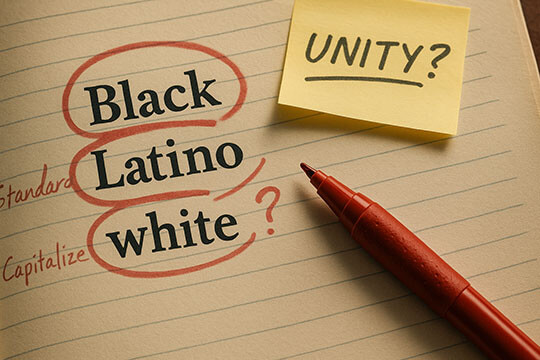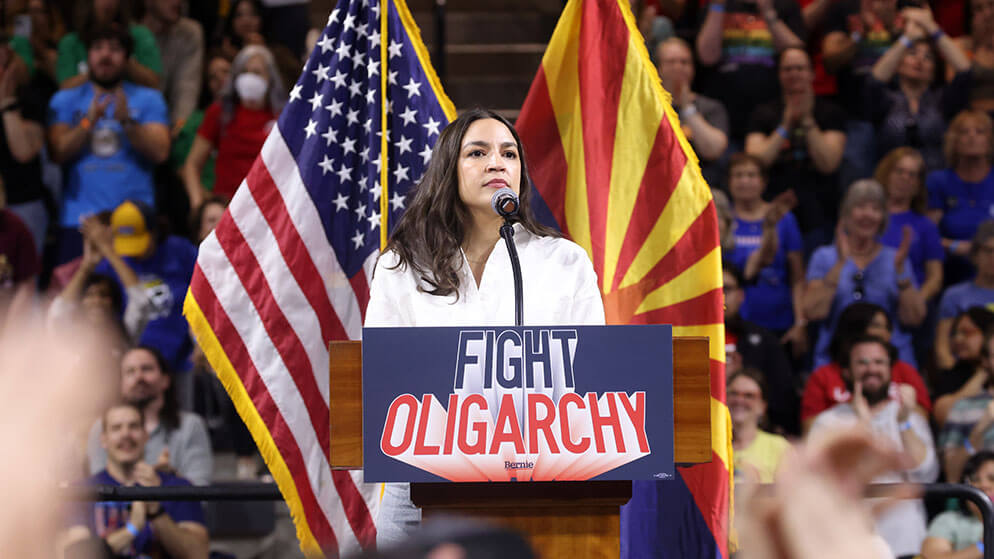
Rep. Alexandria Ocasio-Cortez's campaign team is facing criticism over a social media post that has ignited debate about racial terminology and consistency in messaging. The post from the "@TeamAOC" account on April 23, 2025, featuring content from Ocasio-Cortez's "Fighting Oligarchy" tour with Senator Bernie Sanders, called for unity while using capitalization in a way some critics found contradictory.
The message accompanying a video from a rally in Idaho read: "Do not let them trick you into thinking we are enemies. Do not let them trick you into thinking that we can be separated into rural and urban, Black and white and Latino. We are one." Critics quickly noted that while "Black" and "Latino" were capitalized, "white" was not, with many suggesting this undermined the unity message the post aimed to convey.
One response garnering more engagement than the original post directly questioned the capitalization choice: "If we are one, why did you capitalize 'Black' and not 'white'?" This sentiment was echoed throughout numerous replies, with some characterizing the typographical choice as deliberately divisive.
The controversy touches on ongoing debates in journalism and publishing about racial terminology. The Associated Press Stylebook, which sets standards for many news organizations, updated its guidance in 2020 to capitalize "Black" when referring to people in a racial or cultural context, while maintaining "white" in lowercase. The AP explained this distinction by noting that Black people "have strong historical and cultural commonalities," while finding "less support for capitalizing white" because white people "generally do not share the same history and culture."
Some publications and style guides have made different choices. Several major news organizations, including CNN, Fox News, and The San Diego Union-Tribune, opted to capitalize both terms for consistency. Critics of the lowercase "white" approach argue it implies whiteness as a default status, while supporters suggest capitalizing "white" could inadvertently align with white supremacist terminology.
The controversy comes as Ocasio-Cortez and Sanders tour conservative states with their "Fighting Oligarchy" message, drawing significant crowds in traditionally Republican strongholds like Utah, Idaho, and Montana. The tour has fueled speculation about Ocasio-Cortez's political future, including potential presidential ambitions for 2028.
Neither Ocasio-Cortez nor her campaign has publicly addressed the capitalization controversy directly. The New York representative has continued her tour activities, which have attracted tens of thousands of attendees at various stops across the country.
Political analysts note that this incident highlights the challenges of messaging in an increasingly polarized political environment, where even typographical choices can become flashpoints for debate about identity politics and racial discourse.
The controversy also reflects broader tensions as Democrats search for effective messaging following their losses in the 2024 elections, with progressives like Ocasio-Cortez and Sanders advocating for a populist approach focused on economic inequality and corporate power.






